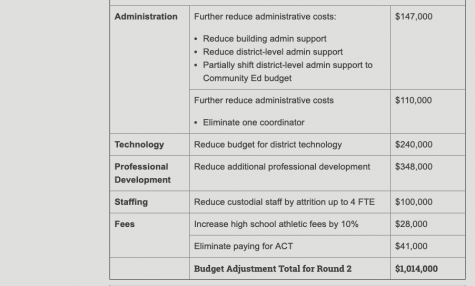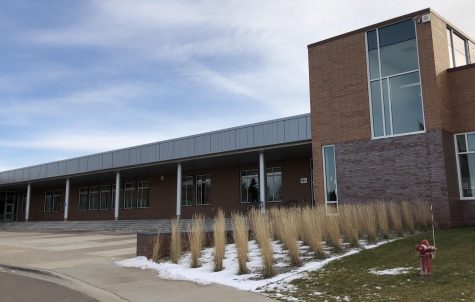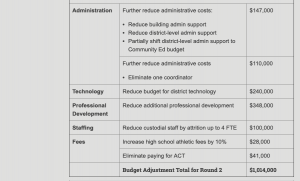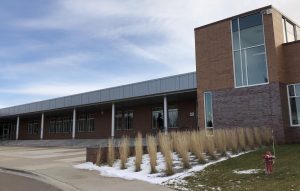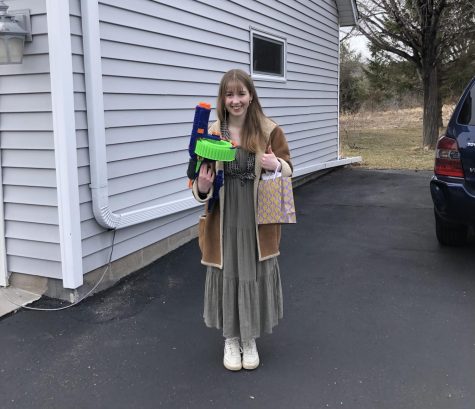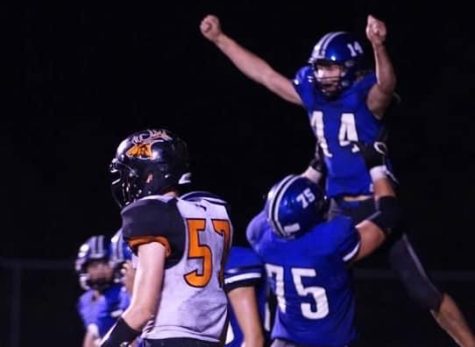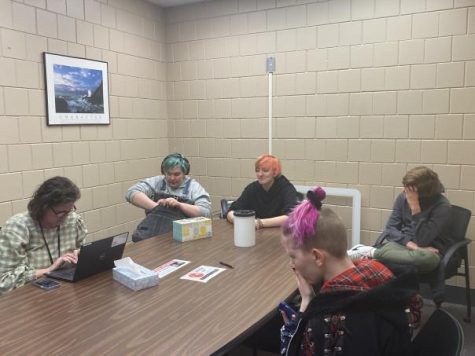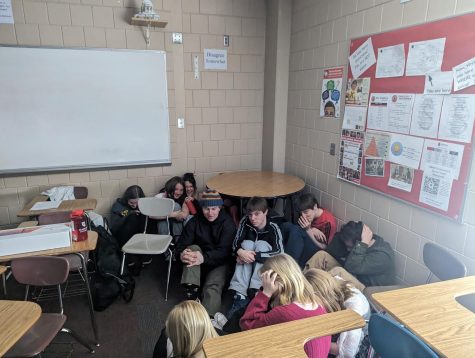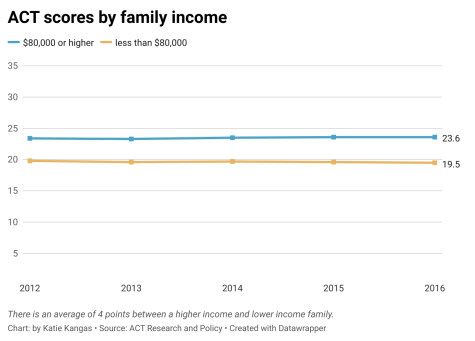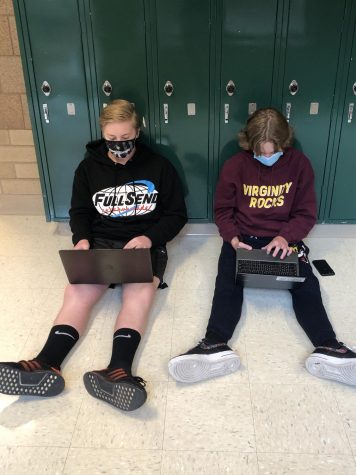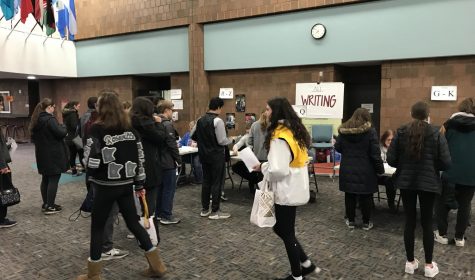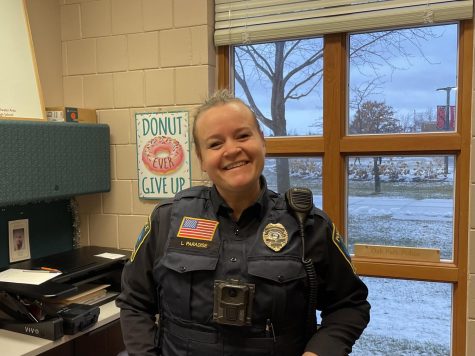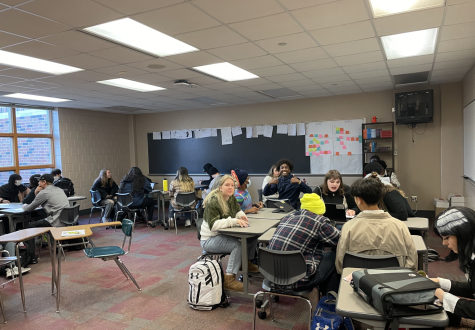Three school board members exemplify the bystander effect in private Facebook group
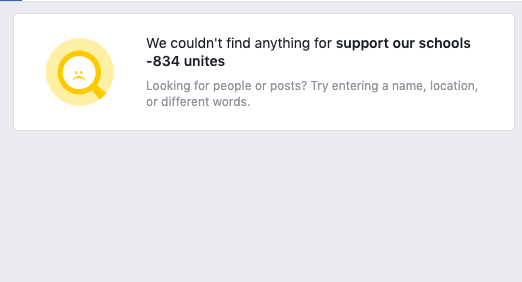
Screenshot of the Facebook search page by Hannah Sween
The private page is not easily accessible. In order to gain access one has to know someone in the group, request that they allow them to request to join the group and then get accepted. This makes it incredibly difficult to use the conversations in the group as evidence to the public of maltreatment and malice because it is difficult to ascertain in the first place.
There is a secret Facebook group called “Support Our Schools – 834 Unites.” It does not show up on the search page, the only way to gain access is by requesting admission from one of its current members. The group boasts 1,600 plus members including three school board members: Sarah Stivland, Liz Weisberg, and Tina Riehle.
This group along with the public “834 Voice” page, the parent page of the private group, share a theme of bitterness and contempt. Eric Anderson, the District Equity Coordinator, spoke at the open forum on April 11 to share his perspective as a victim of their maltreatment.
Confirmation bias leading to further polarization
There is a clear fear among the members of the private page of “moles” in the group. “These sites have often taken the approach of using conjecture and bullying tactics in an attempt to isolate, dehumanize and eliminate anyone who supported the need for school consolidation,” Anderson said. There was an uptick in posts calling the “moles” cowardly and requesting they expose themselves after Alison Sherman’s letter-to-the-editor was published in the Stillwater Gazette on April 5.
Sherman’s letter-to-the-editor was in reaction to a series of posts in the group disparaging district leaders, specifically Student Council Co-Presidents and Student Board Representatives Abdul Mohamed and Nikhil Kumaran. According to Anderson, these comments include the more mundane, “the current student reps are unfortunately ready to take personal offense at everything; and attack and cause fake drama,” compared to some more extreme comments such as, “there [needs] to be some policies that forbid him from talking. Everyone is afraid to address this because of the fear of being called a racist. If it was the two girls last year, this wouldn’t be happening.”
Though the group suggests the behavior of the “moles” is cowardly, the opposite should be argued. Exposing the haughty, belittling comments made by group members is extremely brave in the face of possible maltreatment.
“These comments and conversations cross a line that no parent can accept. If my child was subjected to this, I would be livid,” Sherman wrote in her letter-to-the-editor published in the Stillwater Gazette.
Opening the group to the public also prevents the group members from continuing to hide their petty comments behind closed doors and proliferate bullying in the district. It forces open conversations and, hopefully, progress toward a solution. The question is also raised: what do the group members fear about their own opinions being shared with the public? A person who is comfortable and confident in their opinions would not hide behind a private Facebook group.
“I would like to think if the page were public the dialogue would become more civil and the arguments being made would be more factual in nature,” Sherman said.
The group disparages those who disagree with them, particularly those like Mohamed and Kumaran, who support the expansion of Brookview Elementary. They seem to be holding a grudge on the district for closing the elementary schools and there is an overarching tone of bitterness in their rhetoric that seems to be preventing them from understanding the benefits of not only the Brookview expansion but also diversity of opinion in general. As Anderson said, “hearing the divergent perspective of the students whom we serve, is a non-negotiable part of this equation.”
The ethics of the bystander effect
Taking into account the messages being propagated within the “Support Our Schools – 834 Unites,” what does it mean to be a bystander? Upon being granted access to the page one may scroll through and notice that there seem to be several prominent figures posting or commenting the most, but what about the other 1600 plus people on the page?
These comments and conversations cross a line that no parent can accept. If my child was subjected to this, I would be livid.
— Allison Sherman
In the field of psychology, there is a concept known as the “bystander effect.” The “bystander effect” occurs when the presence of others discourages an individual from intervening in an emergency situation. The lack of action taken against the propaganda being spewed within the group is a result of this social paralysis.
Anderson fears that pages such as “Support Our Schools – 834 Unites” and “834 Voice” are “creating a new normal in Stillwater, one in which we have allowed ourselves to become complicit and almost intoxicated by such belittling rhetoric.”
This bystander effect is also what is preventing the three school board members (Sarah Stivland, Liz Weisberg, and Tina Riehle) from taking action.
Sherman feels that the school board members, as leaders of the community, should be leaders in breaking up the bystander effect within the group and within the district. She suggests that they practice their mantra of trust, accountability, transparency and leadership and “lead through their actions, either remove themselves from the page or demand this private page become visible for all who wish to see it.”
It is unethical for the board members to remain on the page as it has a deliberately limited audience and therefore limits their exposure to the opinions of the entire district introducing questions of bias. As elected officials, the board members relinquish their role as a private citizen in matters relating to the district. Especially because the members of the “Support Our Schools – 834 Unites” want to sway district policy decisions.
“Our directors serve all community members whether those people voted for them or not,” Sherman said.
Transparency and open communications form the foundation of a functional society. Without these foundational concepts, community members turn against each other, education becomes secondary to political agendas and the overall well being of the student body suffers. It is the duty of the school board to maintain this foundation and uphold education by standing up and speaking out against this bullying behavior.
“Follow the lead of our students in elevating your voices on important issues, such as this one, that [is] directly impacting the students and families we profess to serve,” Anderson said.

Hannah Sween is a senior and a Print Editor-in-Chief for the Stillwater Pony Express. She is also the Editor-in-Chief of The Boom Site Literary Magazine....


